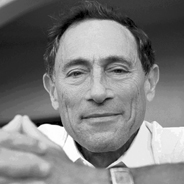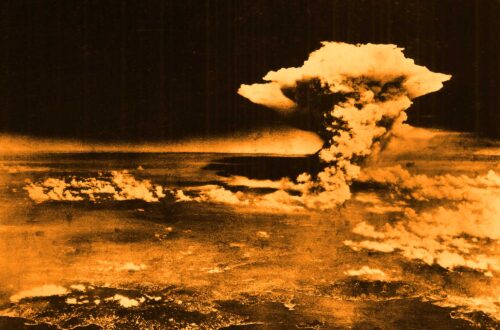John E. Mack, M.D.
Some years ago as I began my clinical work with people who have experienced what many describe as “alien encounters,” I did not imagine that a central part of what I would learn would be how cultures lose opportunities to develop when the testimony of those whose experiences lie outside of what is generally endorsed is dismissed. In my thirteen years of study, I have seen personally both the loss for the culture and the emotional and spiritual damage done to the witnesses themselves when their observations and insights are not valued or are altogether denied.
I have also been struck by the moral kinship between “experiencers” and witnesses of other kinds, such as those who have suffered human rights abuses. An example of solidarity of this kind came home to me in a recent meeting with Palestinian psychiatrist, colleague and friend, Eyad el-Sarraj.
Dr. Eyad, as he is known, is now in his 50’s. In 1990 he founded the Gaza Mental Health Center, which I was fortunate to have been able to visit near the time of its opening. Eyad has generously served a great many Palestinian and Israeli patients. He has been imprisoned by both the Palestinian and Israeli authorities for his stance on human rights, which transcends the partisanship of the two sides. He has himself been tortured in prison. But he remains, in spite of the killing, maiming, destroyed lives and torture that he has witnessed, optimistic about life and the future. People wonder how he does so.
I spoke with him about the many difficulties that I have had in communicating effectively the accounts of people who have had strange experiences, since these fall outside of the province that science and medicine can accept. Eyad compared this to the difficulty that he and others confront in situations of torture, for there is often no way to “prove” that this has happened. The principle evidence, as in the case of alien encounter “experiencers,” is the testimony of the victims, because the torturers have even learned not to leave marks. About a thousand people have come to Eyad’s clinic and spoken to him of being tortured. This is powerful evidence, he says, but he notes that the political authorities act like the scientific establishment in their denial. Officials on both the Palestinian and Israeli sides deny that torture has occurred in order to appear as if they have respected human rights. Similarly, he noted, the scientific establishment denies reports that do not fit its worldview.
Eyad asserts, however, that the testimony of the victims is ultimately more powerful than any political position. I explained to him that the witnesses that came before the Harvard committee that investigated my work with “experiencers” felt so intimidated that it was not possible for the committee members to personally experience the power of what they had gone through. Eyad said that victims of torture are also often intimidated, in this case deliberately. Sometimes when he has asked victims to repeat their stories and sign sworn affidavits in the presence of a lawyer, he discovers that between the time of the initial meeting and the scheduled one with the lawyers the witnesses have been threatened into silence. They fear that the authorities will accuse them, or do something worse to them than what they have already been through.
Eyad notes that the U.S. State Department accuses a number of countries of torture and of violating human rights. But their evidence is primarily the testimony of victims. Part of what allows Eyad to continue to be optimistic is what he calls, ironically, “the silent majority.” People, he said, are, for the most part, loving. But it is the political and scientific establishments that twist the truth for their own ideological purposes.
The loss for a culture when people are prevented from telling important truths is inestimable. Witnessing is a sacred activity. A society can only grow through the wisdom of shared experience; the harm done to a witness is harm done to everyone. Without the benefit of the truth that witnesses bring, a society may be unprepared to enter its own future.
-
 John E. Mack, M.D. was a Pulitzer Prize-winning author and professor of psychiatry at Harvard Medical School.
John E. Mack, M.D. was a Pulitzer Prize-winning author and professor of psychiatry at Harvard Medical School.
Clinical and Political Witnessing: A Meeting with a Palestinian Psychiatrist
© 2003 John E. Mack, M.D.
This 2003 essay was later published in HopeDance magazine, issue 49, March/April 2005, p. 14.
